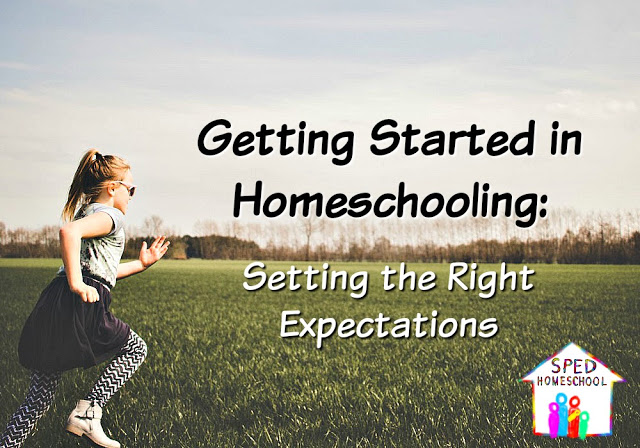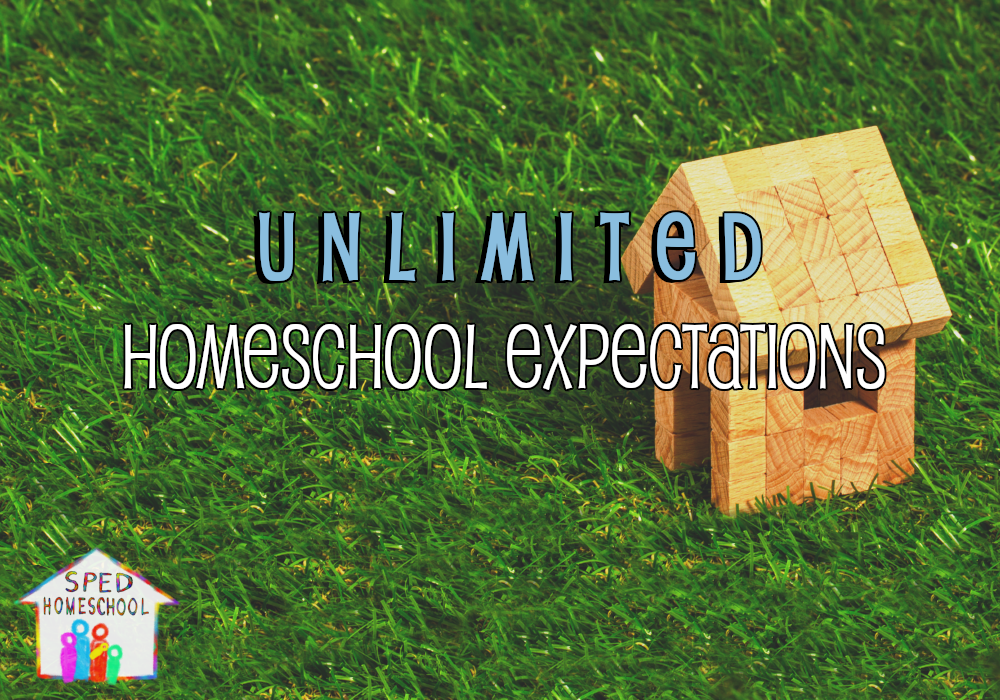
Getting started in homeschooling is like sitting on a roller coaster, waiting for it to lunge forward. You know there will be twists and turns, ups and downs; yet, there is no way of knowing exactly what those will look like. Even after seven years of homeschooling my own kids, my stomach turns somersaults with excited panic as I look over my well-laid plans and anticipate the beginning of another year.
My school space is organized, my curriculum is purchased and lining the bookshelves, and our supplies are neatly stored. Our routine is thought out, typed out, and neatly hung on the wall. I’m ready, I think. But really, after plenty of my own rough starts and bumpy beginnings, I’ve learned that the most important part of preparing for the school year is not necessarily the supplies, the curriculum, or the routine.
The most important part of getting started in homeschooling is setting the right expectations. No matter what your situation, there are some things you can expect.
Expect a slow start.
Ease into this lifestyle change slowly. Read books together. Play learning games together. Take a hike and explore nature together. Expect to spend some time getting to know your kids. Watch them play and take some mental notes about how they choose to learn and what they choose to learn about. Expect to spend some time getting to know yourself. Do you like to homeschool in the morning or in the afternoon? Do you like a scripted plan to read and follow to the letter, or do you like to create your own learning plan? A slow start gives you an opportunity to find out the answers to these questions.
Expect to make adjustments.
In fact, a good goal for your first year in homeschooling would be to try new things. Experiment with different routines and with different learning approaches. Take notes on what you liked and didn’t like, what worked and didn’t work. Also, don’t expect your kids to like everything you try. They will need a period of adjustment, too. If you approach your first year as an experiment, you automatically give yourself (and your kids) the space to try new things, to make mistakes, and to try again. As Thomas Edison once said, “I have not failed. I’ve just found 10,000 ways that won’t work.”
Expect obstacles.
Life is messy, parenting is messy, and homeschooling is messy. We don’t expect to get everything right on the first day of any other job, and we can’t expect to get everything right on the first try in homeschooling either. Expect that it’s going to take some time to get the hang of this. It’s going to look messy for a while, and that’s okay. Realize that the obstacles are not because you’ve failed. Sometimes the tools we are using aren’t getting the job done the way we’d like. Choose a different tool. Do some trouble-shooting. Reach out to others in your support group. (Don’t have a support group yet? Join us at SPED Homeschool Support Group.)
Expect a unique homeschool.
In other words, don’t expect your homeschool to look like the school you just left, your best friend’s homeschool, or your experience in the past. Homeschooling is not an institution; it’s a family learning together. Your homeschool is going to look just as unique as your family. That’s the beauty of homeschooling.
Expect success to surprise you.
Success never comes when I’m expecting it, and success never looks exactly like I’m expecting it to look. Instead, success surprises me when a child mentions a fact from a story I was sure he wasn’t listening to, when a child tries something new for the first time without a meltdown, or when we both realize that a skill that has always been so difficult is suddenly easier. Look for success each day, in the small things.
Expect a future harvest.
Our kids are not educated in a day; it takes years to get the job done. Today is planting a seed. Tomorrow is watering and weeding. We may not see the benefits of that hard work right away. There will be days when we feel like we are watering fallow ground. Some seeds take much longer than others; some plants grow much taller and faster than others. But those seeds will sprout and grow.
You can’t prepare for everything, but you can be ready for anything if you’ve set the right expectations. Getting started in homeschooling is thrilling and scary, but it’s worth the ride.
Did you enjoy this article?
Would you consider a small donation to support the ongoing work of SPED Homeschool?
Click Here to Donate Today



